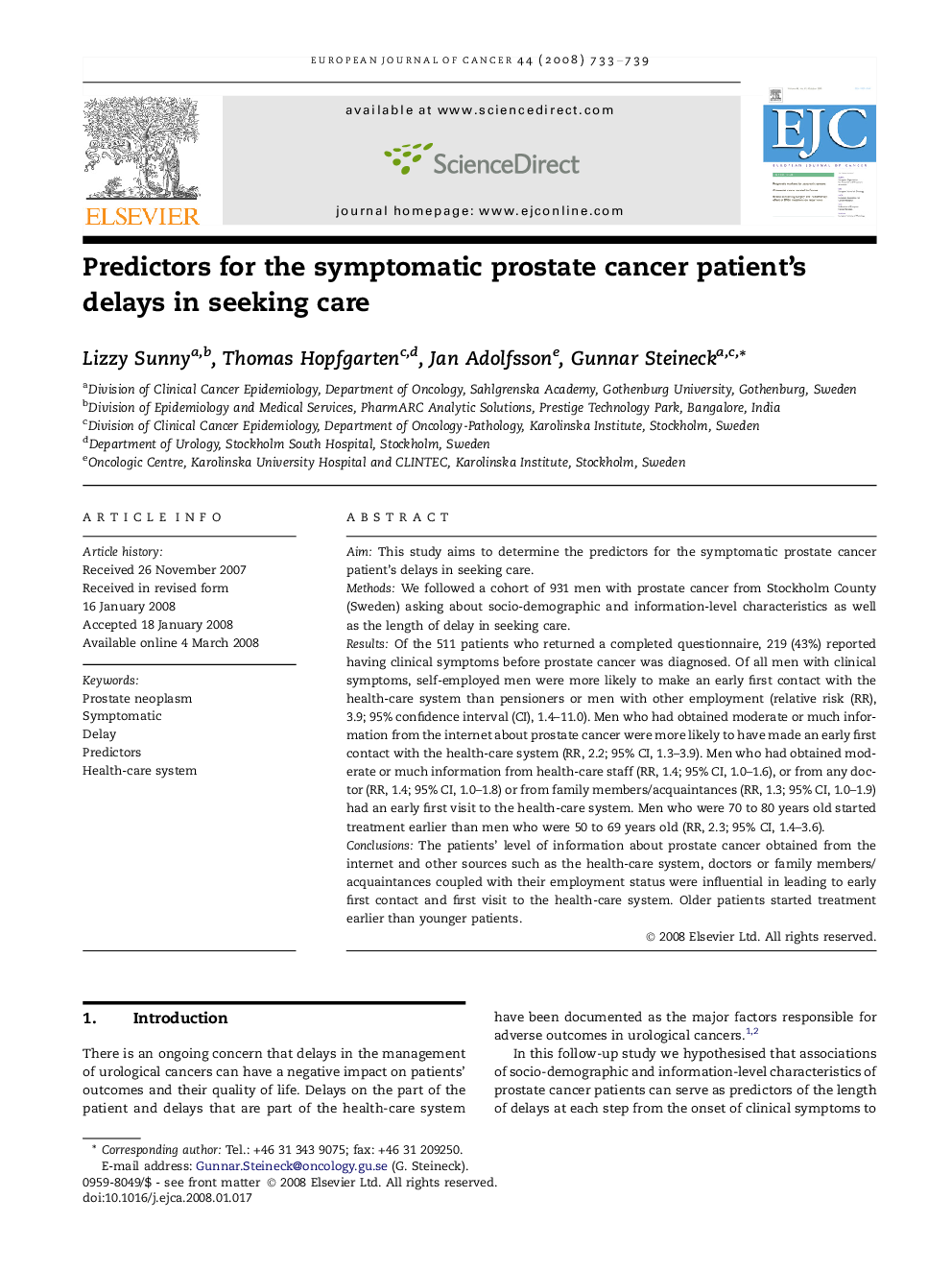| Article ID | Journal | Published Year | Pages | File Type |
|---|---|---|---|---|
| 2124275 | European Journal of Cancer | 2008 | 7 Pages |
AimThis study aims to determine the predictors for the symptomatic prostate cancer patient’s delays in seeking care.MethodsWe followed a cohort of 931 men with prostate cancer from Stockholm County (Sweden) asking about socio-demographic and information-level characteristics as well as the length of delay in seeking care.ResultsOf the 511 patients who returned a completed questionnaire, 219 (43%) reported having clinical symptoms before prostate cancer was diagnosed. Of all men with clinical symptoms, self-employed men were more likely to make an early first contact with the health-care system than pensioners or men with other employment (relative risk (RR), 3.9; 95% confidence interval (CI), 1.4–11.0). Men who had obtained moderate or much information from the internet about prostate cancer were more likely to have made an early first contact with the health-care system (RR, 2.2; 95% CI, 1.3–3.9). Men who had obtained moderate or much information from health-care staff (RR, 1.4; 95% CI, 1.0–1.6), or from any doctor (RR, 1.4; 95% CI, 1.0–1.8) or from family members/acquaintances (RR, 1.3; 95% CI, 1.0–1.9) had an early first visit to the health-care system. Men who were 70 to 80 years old started treatment earlier than men who were 50 to 69 years old (RR, 2.3; 95% CI, 1.4–3.6).ConclusionsThe patients’ level of information about prostate cancer obtained from the internet and other sources such as the health-care system, doctors or family members/acquaintances coupled with their employment status were influential in leading to early first contact and first visit to the health-care system. Older patients started treatment earlier than younger patients.
